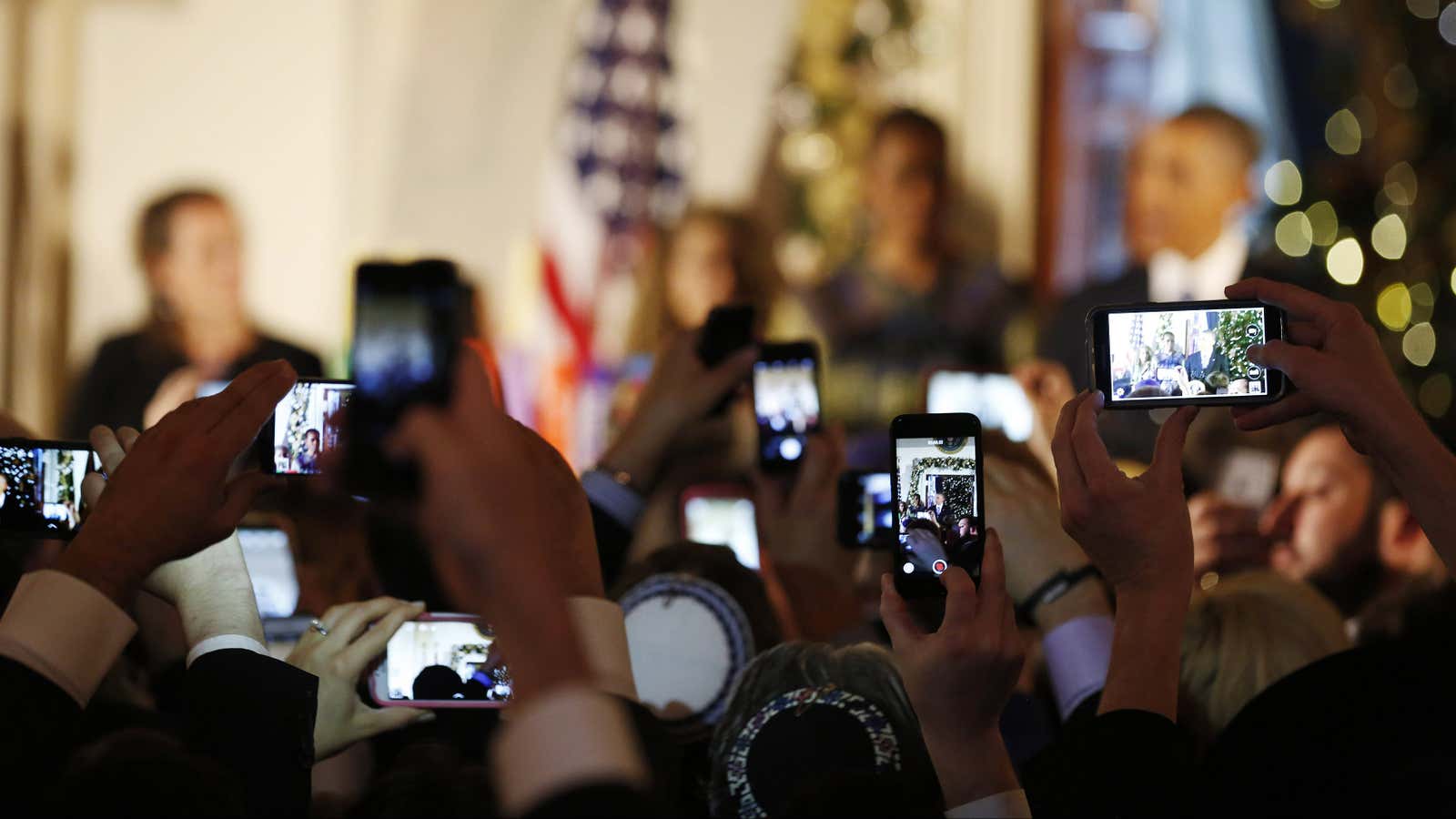In the midst of the gonzo traffic of back-flipping mini-drones, driverless cars and football fields of mobile internet fueled innovation at the Consumer Electronics Show in Las Vegas last week—FCC chairman Tom Wheeler sounded downright presidential.
While typically a compliment, in this instance it sparked cause for concern. For months, chairman Wheeler has led a thoughtful and informed debate on the thorny issue of network neutrality, carving a careful path down the center by making clear that to foster innovation, openness, and competition, regulation must be the last resort.
All that appeared to fly out the window like one of Hunter S. Thompson’s cigarette butts when Wheeler took the stage in Vegas, declaring his new-found fervor for what some call the nuclear option: Title II regulation of the Internet. (If you are fortunate enough not to be too deeply mired in the details of this debate, Title II refers to the rules congress drafted decades ago to govern rotary phones.)
What changed on the road to Vegas to cause Wheeler’s U-turn? The 11th hour intervention of president Obama. His unprecedented net neutrality video in November arrived just as the FCC neared completion of its rigorous independent policy process that engaged congress, consumers, public interest groups, trade associations, other governments, labor unions, think tanks and businesses small and large in dialogue about how to shape the most appropriate and effective open internet rules.
The Obama administration, of course, is right to want to ensure that all Americans can continue to reap the many benefits of an open internet. How we best achieve that is what’s in question.
If Wheeler does indeed follow the president’s lead on Title II, it could cut an indiscriminate path through both core and edge internet innovators, exposing internet companies of all shapes and sizes offering any sort of transmission component to a puzzle palace of potential obligations and fees, from pricing restrictions to universal service funding requirements, and a raft of government reporting rules. It would also pour molasses over the nation’s mobile broadband ecosystem which remains by far the most innovative, competitive, and fastest-growing of all broadband services precisely because it has never been subjected to this most burdensome and restrictive of our nation’s regulatory regimes.
Virtually all corners of the internet ecosystem could be impacted, including over-the-top services like Netflix, music streaming services like Spotify and Pandora, cloud services like Amazon’s and Microsoft’s, advertising served over the internet like Yahoo’s and Facebook’s, and voice-over-internet services like Skype, Viber, WhatsApp, Facetime, and Google Hangouts, not to mention the many newer and smaller entrants seeking to compete with them. Old rules designed for early 20th century technologies like the rotary phone shouldn’t be allowed to impede the internet’s future.
Wheeler appears to believe that the FCC can ease the impact of this regulatory steamroller by granting “forbearance” from certain of Title II’s most onerous requirements. But as any communications lawyer can attest, forbearance proceedings at the FCC are typically subject to a lengthy evaluation process, and potentially costly legal challenges. While it is a full employment plan for regulatory lawyers, the Title II regime is plainly a risky deal for internet and technology companies and investors of all shapes and sizes, and the hundreds of millions of mobile broadband consumers who depend on them.
By strong-arming Title II, the president peremptorily brushed-aside other more viable options. Last year the US Court of Appeals for the DC Circuit held that internet providers could be regulated under the far-more-workable statute of the Telecommunications Act known as Section 706, which would provide a more flexible, case-by-case approach to safeguarding the open internet. The FCC could also work with the internet community to develop a set of voluntary yet enforceable open internet principles. Recognizing the threat posed by Title II, congress also has shown real interest in this area. Updated legislation could set effective rules of the road to protect consumers without letting Title II drive the internet into the ditch. It could also help prevent years of innovation- and investment-sapping regulatory uncertainty.
By embracing Title II internet regulation, the president also turned his back on one of the most successful policy frameworks ever conceived in Washington—a bipartisan framework guided by the principle that when it comes to innovation policy, government’s greatest contribution is to show restraint. This view has underpinned almost two decades of internet-fueled innovation and economic growth for our nation.
It also seemed to define Wheeler’s regulatory philosophy, summed up by his comments as recently as September that “incentivizing competition should precede regulation.” This bedrock principle still holds despite the 11th hour intervention of the president and his political advisers. Indeed, the White House’s incursion into the work of an independent regulatory agency will undoubtedly grab the attention of a freshly emboldened congress, raising what is quickly becoming a central question: Should such a dramatic shift in US policy—one with far-reaching impact on the nation—be left to unelected officials?
Wheeler recently wrote a book about the leadership lessons we can learn from Abraham Lincoln’s use of telegraph technology to communicate with his senior administration officials and generals.
In the wake of another president’s use of the modern-day equivalent of the telegraph, Wheeler has the opportunity to apply his book’s lessons as he charts the proper course for the future of our open internet.
Assuredly, the inventive Lincoln, the only American president to hold a patent, would challenge policymakers to be guided not by post-election politics, but by the facts on the issue, the choices of our consumers, and the inspiration of our innovators.
That is why what Wheeler said last week in the desert was so contradictory and contrary to the cause of maintaining the open and dynamic internet we all enjoy. For the US economy, American innovators and consumers the world over who are eager to see what’s next, here’s hoping what was said in Vegas truly stays in Vegas.
